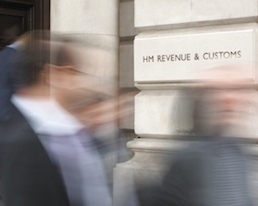Further details on the changes to the taxation of dividends announced in the last Budget have been released by HMRC.
The Treasury said in July that the dividend tax credit would be replaced with a new tax-free allowance of £5,000 of dividend income for all taxpayers. It takes effect from April 2016.
The Chancellor said the move would “simplify the taxation of dividends” but Financial Planners said smaller firms would have to review how they pay directors as a result.
The Government has set the dividend tax rates at 7.5% for basic rate taxpayers, 32.5% for higher rate taxpayers and 38.1% for additional rate taxpayers but there will be no tax credit. There will be an increase of 7.5% where dividend income exceeds £5,000.
Previously, individuals in receipt of dividends benefited from a 10% tax credit which for basic rate tax payers meant they could enjoy their dividend tax free. Higher rate tax payers paid an effective 25% tax rate.
{desktop}{/desktop}{mobile}{/mobile}
Officials at HMRC said in an update published yesterday that the £5,000 tax-free allowance would still be taken into account when assessing someone's overall income for tax purposes.
The report said: “The Dividend Allowance will not reduce your total income for tax purposes. However, it will mean that you don’t have any tax to pay on the first £5,000 of dividend income you receive.
“Dividends within your allowance will still count towards your basic or higher rate bands, and may therefore affect the rate of tax that you pay on dividends you receive in excess of the £5,000.
“Dividends received by pension funds that are currently exempt from tax, and dividends received on shares held in an Individual Savings Account (ISA), will continue to be tax free.
“From April 2016 you have to apply the new headline rates on the amount of dividends you actually receive, where the income is over £5,000 (excluding any dividend income paid within an ISA) allowance.”
The HMRC document stated: “The Dividend Allowance means that you won’t have to pay tax on the first £5,000 of your dividend income, no matter what non-dividend income you have. The allowance is available to anyone who has dividend income. This simpler system will mean that only those with significant dividend income will pay more tax.
“If you’re an investor with modest income from shares, you’ll see either a tax cut or no change in the amount of tax you owe.”
The change was branded an attack on entrepreneurship by accountancy firm Wilkins Kennedy at the time it was revealed.
Andrew Elson CFPCM, owner of Accredited Financial Planning Firm Beaufort Financial Planning (Yorkshire) previously told Financial Planner Online: “I think a lot of smaller firms will have to reconsider the way they pay themselves. In the past a lot of directors moved to dividends as it was more tax efficient, especially with the national insurance (NI) saving."
Nicola Watts CFPCM, director of Jane Smith Financial Planning, said: “Certainly many directors who pay themselves low salaries and remunerate themselves mostly via dividends are going to see their tax bill go up."
At the time of the announcement she said she would have to think about increasing her income from the business to cover the additional tax liabilities she would incur.
Parminder Bains CFPCM, principal at Moorgate Place Wealth LLP, said: “Many small business owners pay themselves by salary and dividends and there will be an impact for them here.”

